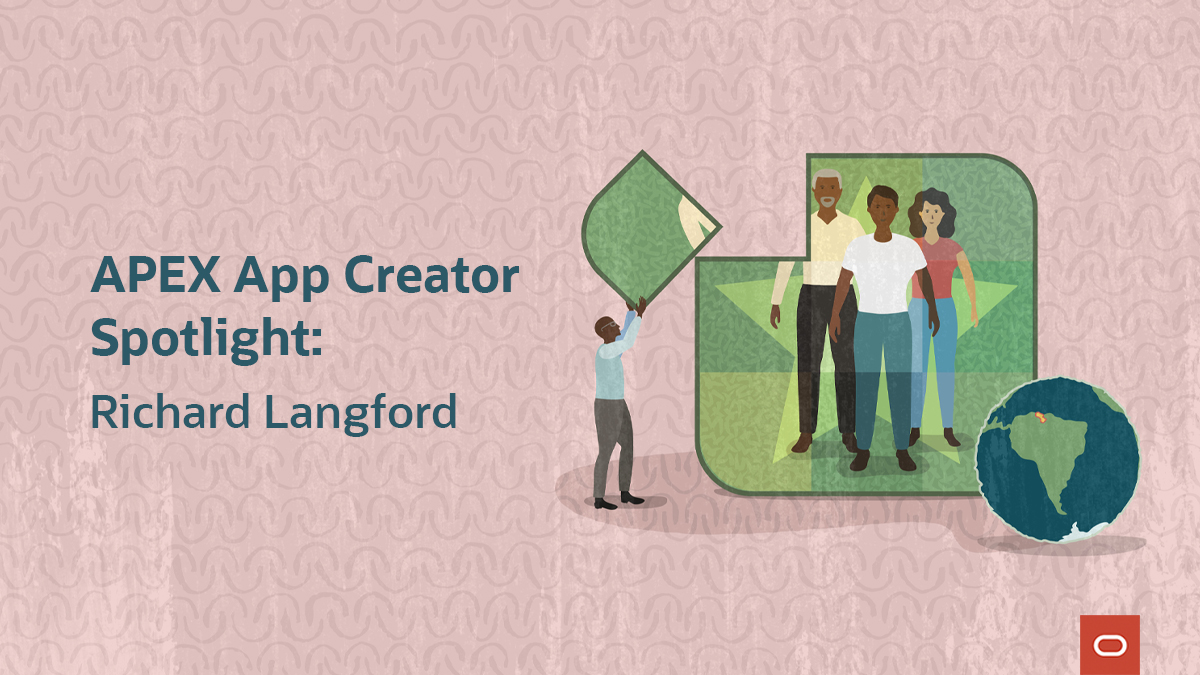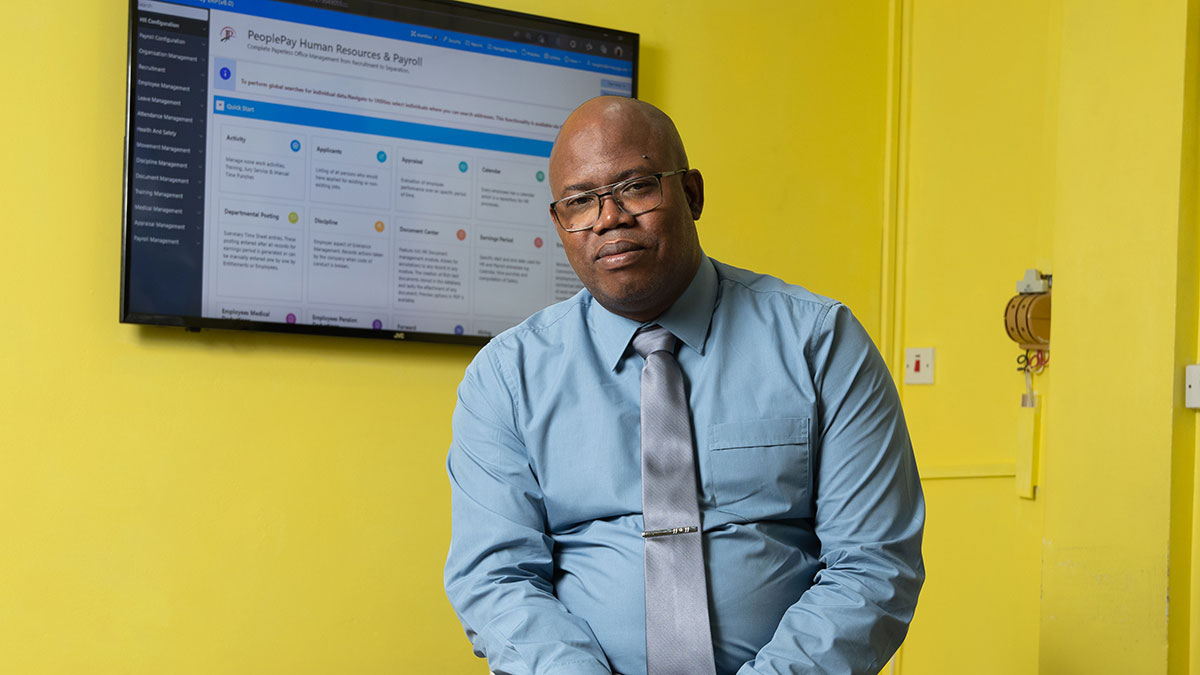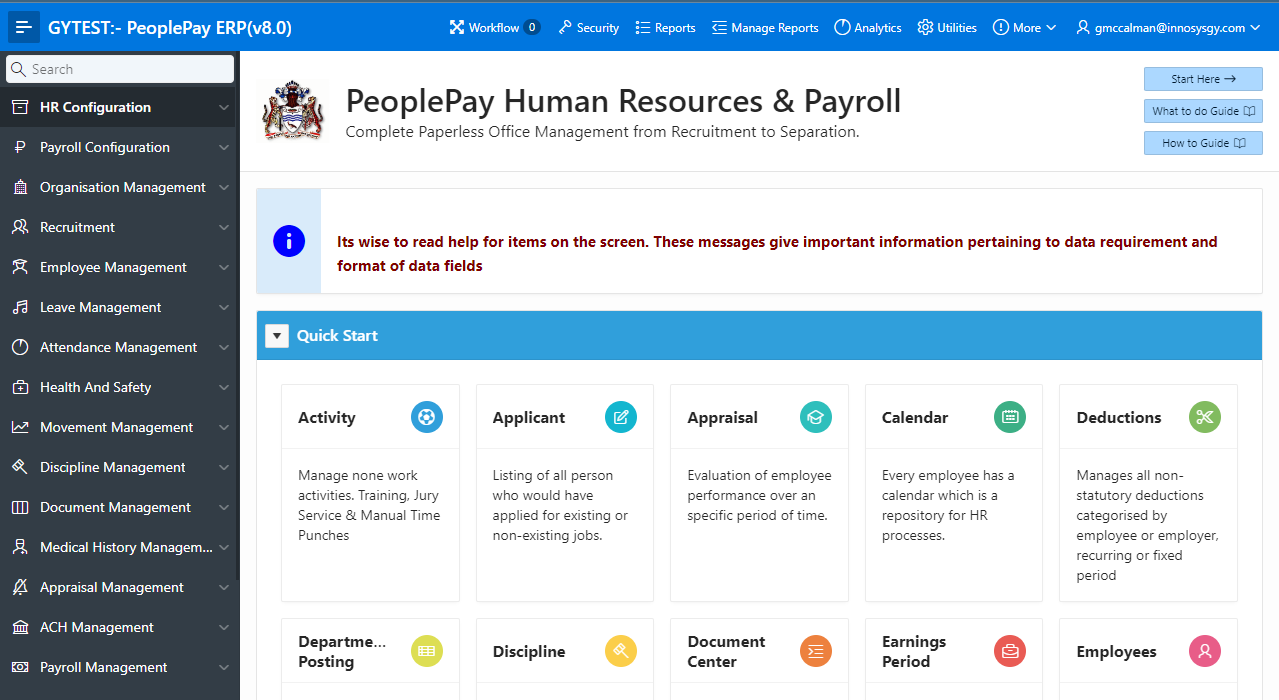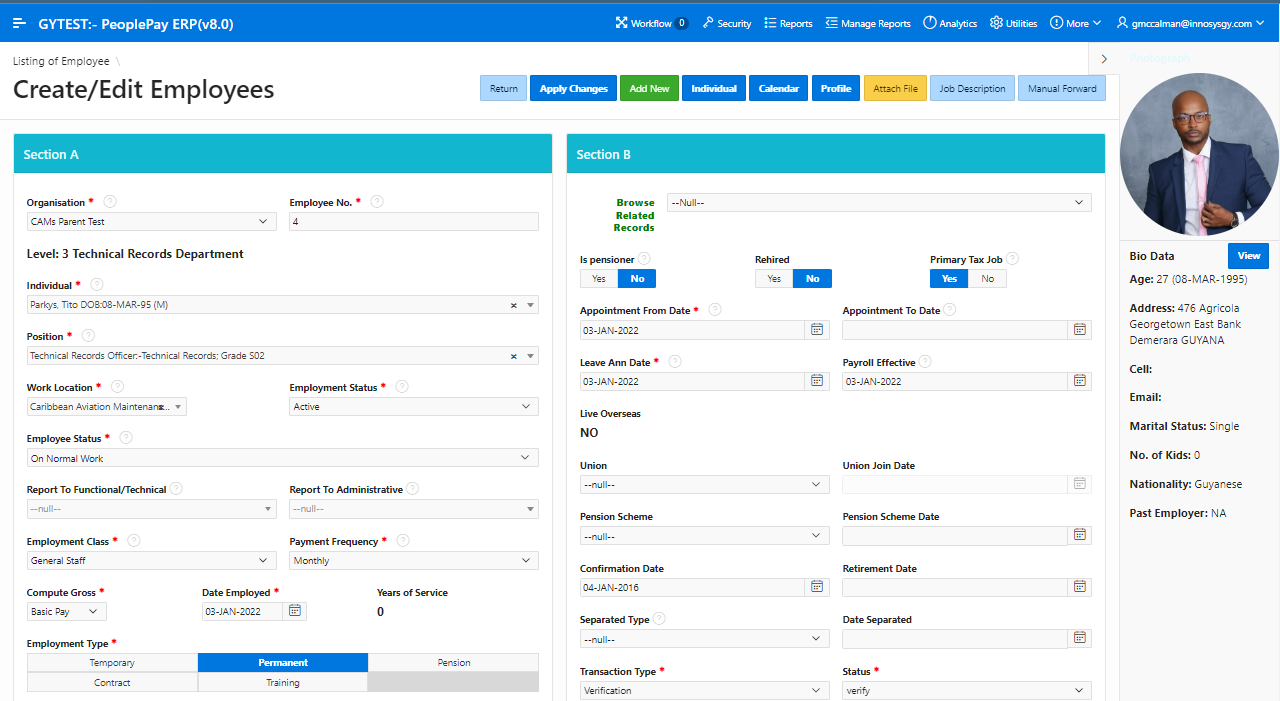
Many small-to-medium companies struggle with manual HR processes that can slow productivity, frustrate employees, and hamper innovation. Yet for many businesses, especially those operating in the developing world, HR systems that can eliminate such challenges are often financially out of reach and perhaps more complex than is required for the market.
Richard Langford, founder and CEO of Innovative Systems Inc. (Innosys), an enterprise software development company located in Guyana, South America, wanted to change that. Langford created PeoplePay, a human resources management information system (HRMIS) app that companies in Guyana can use to streamline and automate payroll and other human resources processes.
Building a modern HR solution
Langford grew up in Guyana as the youngest of nine siblings. While in high school, he developed a fascination with technology and later pursued a degree in computer science at the University of Guyana. Following graduation in the late 1990s, Langford became the first programmer ever hired at Guyana National Insurance Scheme (NIS), the country’s social security organization. While at NIS, Langford became interested in how Guyana’s statutory employee tax, known as Pay As You Earn (PAYE), is computed. Under the PAYE system, employed individuals pay taxes via payroll deduction. The responsibility is then on the employer to deduct and remit the taxes to the tax authority by the 14th day of the month following that in which the employment income was paid.

Richard Langford, founder and CEO of Innovative Systems Inc., created PeoplePay to help companies in Guyana streamline and automate payroll and other HR processes.
“I recall seeing companies using very rudimentary solutions to compute PAYE,” Langford says. “Very few companies in Guyana had anything computerized. There was a need for a solution that could help businesses with faster and more accurate preparation of employee wages, salaries, and taxes.”
So Langford learned to use Microsoft Access and developed a basic payroll processing app. He then added critical HR components that directly influence payroll, including employee allowances, remittances, and deductions. Langford soon realized that Microsoft Access in its native state was limited, so he upgraded to Microsoft Access Projects, which allowed him to connect the app to a SQL Server backend. That generated the first version of PeoplePay, where payrolls were executed as batches.
Not long after, Langford learned to use Oracle Database 8 and 9 and Oracle HTML DB. “Coming from a Microsoft Access environment, Oracle HTML DB was a match made in heaven,” he says. “I immediately began reading everything I could find about HTML DB and created a small application that allowed our department to keep track of software license renewals and server maintenance cycles.”
But Langford’s first love was PeoplePay, so he eventually began to convert the app from SQL Server to Oracle, and later to Oracle APEX. The very first Oracle APEX version of PeoplePay was created in Oracle APEX 3.5.
| “Users enjoy the rich functionality of Oracle APEX. The user friendliness and power of interactive reports add significant value to the system.” |
| —Richard Langford, Founder and CEO, Innovative Systems Inc. |
Langford learned so much about Oracle products, he was eventually hired by the Guyana Revenue Authority as a senior Oracle database administrator. While employed there, he continued to develop and improve PeoplePay in his spare time.
PeoplePay caught on quickly, and Langford soon had several paying customers. In 2013, he legally incorporated his business. This attracted several utility companies and larger clients of significance, so he decided to leave his day job and set out to market PeoplePay full time.
Finding a niche
Today, PeoplePay is Innosys’ flagship product and primary revenue earner. The company works exclusively with Oracle products and Oracle APEX and is currently the only Oracle partner in Guyana.
“It’s not that we cannot use technology from other companies, but we have not encountered a use case that Oracle APEX cannot support,” says Langford. “Users enjoy the rich functionality of Oracle APEX. The user friendliness and power of interactive reports add significant value to the system.”

Organizations within Guyana use PeoplePay to calculate employee wages, salaries, and taxes faster and more accurately.

PeoplePay includes modules for payroll, recruitment, health and safety, training, benefits, and more.
The PeoplePay technology stack currently includes Oracle Linux, Oracle Database, Oracle APEX 20.2, Oracle Rest Data Services (ORDS) 19 standalone, and JasperReports Server for reporting. Innosys currently runs PeoplePay on Oracle Gen 2 Cloud in a PaaS environment. The company offers a dedicated environment for larger clients and a shared environment for smaller clients.
“Initially we started with the embedded PL/SQL gateway but quickly realized this was not suited for large numbers, so we switched our web server to HTTP server,” says Langford. “Now Oracle APEX only runs on ORDS. The Select2 plugin is also pervasive in PeoplePay. It is awesome.”
Today, PeoplePay includes modules for payroll, recruitment, health and safety, training, benefits, and more. It facilitates employee self-service and allows companies that use it to reduce manual processes and automate payroll functions, such as calculating salary increases, retroactive payments, PAYE and NIS contributions.
PeoplePay is currently used to pay more than 8,000 employees from 20 different companies, including three major utilities in Guyana, namely the Guyana Telephone and Telegraph Company, a subsidiary of ATN International, and a publicly traded United States telecommunications company. Langford plans to eventually offer PeoplePay in other countries beyond Guyana. Toward that end, he recently acquired ISO certification to ensure his company can develop and maintain standards and meet customer expectations.
However, Langford’s primary focus remains on helping companies in his native Guyana and the Caribbean at large.
“Most of the current international HRMIS solutions are too expensive and complex to customize,” he says. “We have found a niche for our system to fill that gap with the distinct advantage of being cost effective and relevant to Caribbean government systems and laws.”
Dig deeper
Other articles in this series
- APEX App Creator Spotlight: Mathias Maciel’s CES application tracks student performance data for educators in Paraguay
- APEX App Creator Spotlight: Pablo Duque’s NeuroBase helps neurorehabilitation experts improve the patient experience
- APEX App Creator Spotlight: Christina Moore’s Tempest-GEMS tracks dollars, data, and docs during disaster
- APEX App Creator Spotlight: Shelley McNeill’s HOMR acts as a workforce multiplier for datasets used to understand the trajectory of climate change
- APEX App Creator Spotlight: Low-code is enterprise-ready—just ask Jessica Giddens
- APEX App Creator Spotlight: Dan Larsson’s Kemdb tracks toxic workplace chemicals
- APEX App Creator Spotlight: low-code automation saves scores of administrative hours for professional training business
- APEX App Creator Spotlight: Michelle Skamene’s Reading Rewards promotes literacy to children around the world
Illustration: Wes Rowell
Photography: Randy Brooks/Getty Images for Oracle